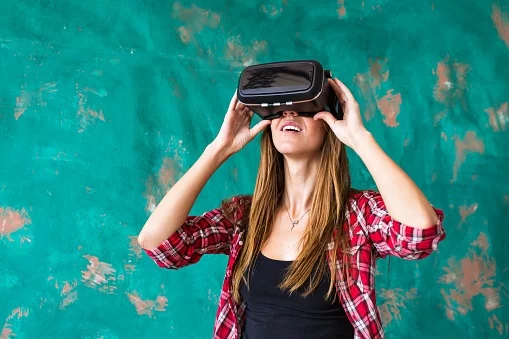By Erica Laceria on Mar 15, 2017 @ 03:18 PM
Stepping into a virtual reality world is easier and more accessible than ever with capable smartphones in pockets of millions of Americans. Taking a gondola ride in Venice or exploring the coral reef without leaving your living room allows us to experience new parts of the world. But what effect does virtual reality (VR) have on our health - specifically our eyes?
Just like when cell phones first became popular and affordable, studies about their potential link to cancer and other negative effects started popping up all over the news. Virtual reality headsets are stirring up similar studies. Now, the health community is quickly trying to determine if VR headsets are cause for concern. So, this begs the question: Do virtual reality glasses affect my health?
Optometrists are looking for connections between VR headsets and issues with vision. In the last couple of years, the effects of staring at a cell phone, tablet or computer screen showed us there can be negative consequences. However, the data on VR is questionable.
For those who have never used a VR headset with a cell phone before, this is how it works: the phone clicks into the front of the headset and glasses containing two small LCD monitors. These monitors are projected at each eye. Having two monitors helps with the illusion of depth. The phone's screen is clicked in a few inches from your face. This has made health experts question VR glasses safety for people, especially for children and teens.
One of VR's biggest demographics are teens and children. This group is at the highest risk for developing early near-sightedness and digital eye strain. This is due to the fact that their sight is still developing. These age groups also spend a lot of time on other digital devices. Combined with VR, health professionals are unsure if there could be long-term effects.
Most negative effects are short-term and resolve themselves shortly after removing the headset. Blurred vision and seeing double has been reported by users. However, our eyes often adjust without issue after the headset is off.
Marty Banks is a professor of optometry at the University of California, Berkeley, and head of the visual space perception laboratory. In an interview with The Guardian, “Everything I have seen suggests it is all short-term and you readjust after you take that headset off,” he said. “But I think it would be unwise for us to say there is no problem." Because VR tricks our eyes’ depth perception, it is unsure if using these headsets will help strengthen or weaken our depth perception.
In conclusion, there are no long-term studies on the effects of VR. At this point in time, the best resource for questions on VR will be your eye doctor. Scheduling routine eye exams and beginning a conversation about various sources of digital eye strain and their hazards will be important, especially as VR technology advances.





comments